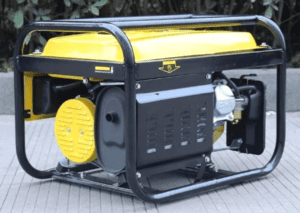Import changes in % to previous period in 2021-2022

Daten: SSSU
Import of goods in Jan-Sep 2022 in most important positions and in relation to same period in 2021

SSC of Ukraine

The Verkhovna Rada Finance, Tax and Customs Policy Committee has recommended that the draft laws on the cancellation of VAT and customs duties on imports of generators and other energy equipment, as well as Starlinks, be passed in the second reading, the head of the parliamentary committee for financial, tax and customs policy Daniil Getmantsev said.
“The purpose of the bills is to introduce short-term tax and customs incentives for the restoration of energy infrastructure, namely exemption from import duty and value added tax (VAT) on imports of generators and other components until May 1, 2023,” he wrote in Telegram.
The corresponding bills № 8196 and № 8197 were voted for by 23 members of the committee.
People’s Deputy Yaroslav Zheleznyak (faction “Voice”) noted that the bills will go to the session hall during this session and may be adopted.
He specified that the documents also take into account the exemption from payments for postal and express consignments and provide the opportunity to store fuel without a license up to 2 thousand liters.
Nardep noted that the import of equipment under the Energy Community technical assistance is also exempted from VAT and duties.
Foreign trade turnover by most important positions Jan-Aug 2022 (import)

SSC of Ukraine

Ukraine has imported power generators and generator equipment worth $60m over the last two weeks, First Deputy Economy Minister Denis Kudin said.
“The second item of imports for the last two weeks were generators and generator equipment. Second only to fuel. We’ve imported $60 million worth of such equipment in those two weeks, and judging by what we know from the companies, the volume of generators that are on the road waiting for delivery in the second half of December, January, February and March is just off the charts,” he said during a discussion at the Center for Economic Strategy on Thursday.
Kudin added that, according to his data, Lviv and Kyiv are compensating businesses for 75 percent of the cost of generators.
Import of goods to Ukraine in % to the previous period in 2021 and 2022

SSC of Ukraine